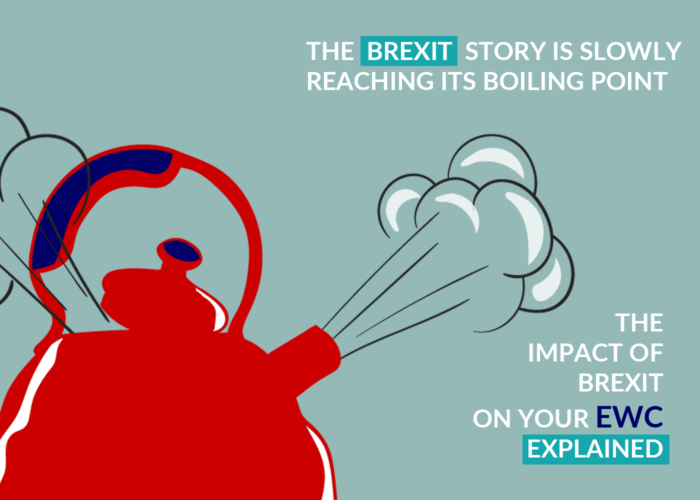Brexit; burning bridges? (blog 3/25)

25 years of EWC directive, 25 years of EWC Service
The Brexit story is slowly reaching its boiling point. In this utter confusion, the situation for European Works Councils (EWCs) seem to be a little more straightforward. In March 2019, the European Commission published a ‘Notice to stakeholders’ clarifying the matter. In case of a ‘no deal’, the EWC Directive will no longer apply to the UK. In the old ’Withdrawal Agreement’ that was concluded under Theresa May, the same would have been the case, but only after a transition period.
This means that the UK employees will no longer count to determine if a company has the required number of employees to establish an EWC. However the existing EWCs that would no longer reach this threshold, are not automatically dissolved. Since the EWC Agreement is a private agreement between two parties, it may still be valid under national law, depending amongst others, on what clauses the agreement may have on falling below the thresholds. It is important to realise that such an EWC will no longer function under the rights and obligations of the current EWC Directive.
Companies that have established an EWC under UK legislation will, as of the withdrawal date, immediately move under new jurisdiction. If the company does not appoint a subsidiary for this role, it will be automatically the member state with the highest number of employees.
Finally, but most importantly:
what will happen with the UK colleagues in the EWC?
They will not have the automatic, legal right to be represented in an EWC anymore. It all depends on the particular EWC Agreement. If the scope of the Agreement is defined in terms of the EU&EEA, the UK is out after Brexit. That is, unless there is an additional clause in the Agreement allowing for some time before changes in the covered countries take effect.
The ‘Notice to Stakeholders’ that the EC published explicitly refers to the article 13 of the EWC Directive. This states that where the structure of the company changes significantly, negotiations must start to amend the Agreement. The withdrawal of the UK may lead to such a significant change. Better for the existing EWCs would be to proactively engage with management and agree that the UK colleagues will continue to be full members of the EWC. In many companies, the EWC and Central Management have already agreed that also in future, ’whatever mess the politicians make of it’, UK employees will continue to be part of the European Works Council. Sadly enough, we also have some examples of managers, that argue ‘so you want to be out, then you have to go out all the way’, and do not want the UK colleagues participating in the EWC anymore, thus ignoring the deep controversies that split the UK at the moment. Europe is facing increasing tensions, between the different EU and non-EU countries and also in internal country politics.
We believe that the EWC could be a much needed tool to re-unite and bring people together. Let us not forego this opportunity.
Sjef Stoop , EWC trainer and advisor




